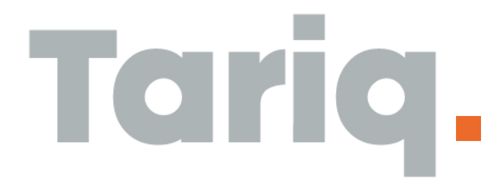Behind every successful professional is a trusted network that offers perspective, challenges their thinking and holds them accountable. This is what they call a personal advisory board, and it has been an important part of my professional development journey.
As Podcast Host of “Vitamin U” and Founder of Reidentify, Jonathan Reid said in his interview: “I’d rather be the small fish in the big pond than the big fish in a small one. That means there’s more space to grow, more opportunities and more room to improve.”
You don’t need to be a CEO of a major organisation to benefit from an advisory board. You just need to be deliberate about who you learn from and identify the areas of your life you want to strengthen.
What Is a Personal Advisory Board?
A personal advisory board is not a formal panel. It is a curated group of individuals who help you navigate your career and personal growth with clarity and confidence.
It includes those you respect, trust and ultimately would like to grow with. They might consist of mentors, industry peers, friends or family with strong values, or professionals with experience you admire. Each person brings something different: wisdom, honesty, encouragement or strategic thinking.
The aim isn’t to be surrounded by those who agree with everything. You need individuals who sharpen your thinking, call out your blind spots and keep you grounded as you grow. That’s usually why it’s recommended you pick a set of people who may not always share the same perspective.
Diversity of thought matters. Some will challenge your thinking; others will offer emotional steadiness and a few will have walked the path you’re striving toward. The blend creates a balance between vision and reality, ambition and patience.
Why You Need One
Knowing how to bounce back from setbacks, when to step into new spaces and how to fine-tune your offer can be challenging. That kind of clarity often comes through conversation with those who have been there already and are happy to keep you on the straight and narrow.
Your team can help you make better decisions by offering input from diverse perspectives, keeping you accountable to your goals and values and helping you avoid common pitfalls by learning from their experiences.
No one achieves meaningful success alone. Your board acts as your sounding board, cheerleader and reality check for when the going gets tough.
Join the £1M Visibility Blueprint
Weekly insights from my £1M personal brand journey. Strategy, visibility systems and earned media plays you can use now.
Who Should Be On Your Board?
Think about the different areas of your life and work. You want a mix of personalities and strengths. Some examples:
- The Mentor: A trusted guide who’s further along in their journey and can share valuable insight shaped by experience.
- The Challenger: A bold thinker who pushes you beyond your comfort zone, questions your assumptions and helps you reach higher.
- The Encourager: A steady voice of belief who boosts your confidence, especially when imposter syndrome tries to take over.
- The Connector: A natural networker who introduces you to new people, opens doors and creates growth opportunities.
- The Specialist: An expert with deep knowledge in a specific area you’re looking to master or understand more fully.
You don’t need a huge group. Even three to five individuals, depending on your stage in business or life, can make a powerful impact if chosen intentionally.
How to Build and Maintain It
Start by doing a skill gap analysis. Reflect on your career or business goals and ask yourself: What am I missing? What areas do I need to improve to get to the next level?
Be honest about the skills, knowledge or perspectives you lack right now. Once you’ve identified those gaps, do some desk research. Look for well-placed people to support your development, whether that’s through their expertise, lived experience or strategic insight.
Some may already be in your network playing a positive role. Others may require you to step outside your comfort zone to build new relationships. In some cases, accessing their support might involve a financial investment like a paid mentorship, a course or coaching, so be clear on your budget and who you’re looking for.
When you begin forming your board, maintain the relationships with intention. It doesn’t mean constant updates but rather checking in, asking meaningful questions and offering value in return. It should always be a mutual exchange based on respect and trust.
As your goals shift, your board may change and that’s okay. What matters is having people who can help you through each stage with insight and encouragement.
Moving Forward
Sometimes going against the grain can feel lonely, but it doesn’t have to be. The right connections will remind you of your purpose, help you stay focused when things get tough and walk alongside you when the road feels unclear. Growth is rarely a solo journey.
When you build your board with care and clarity, you’re choosing to rise with the guidance and shared wisdom of others.
And one day, when someone invites you into their personal advisory board, it will be a full-circle moment and a sign that your journey, your lessons and your presence have become a valuable part of someone else’s growth story too.
See you next week!





